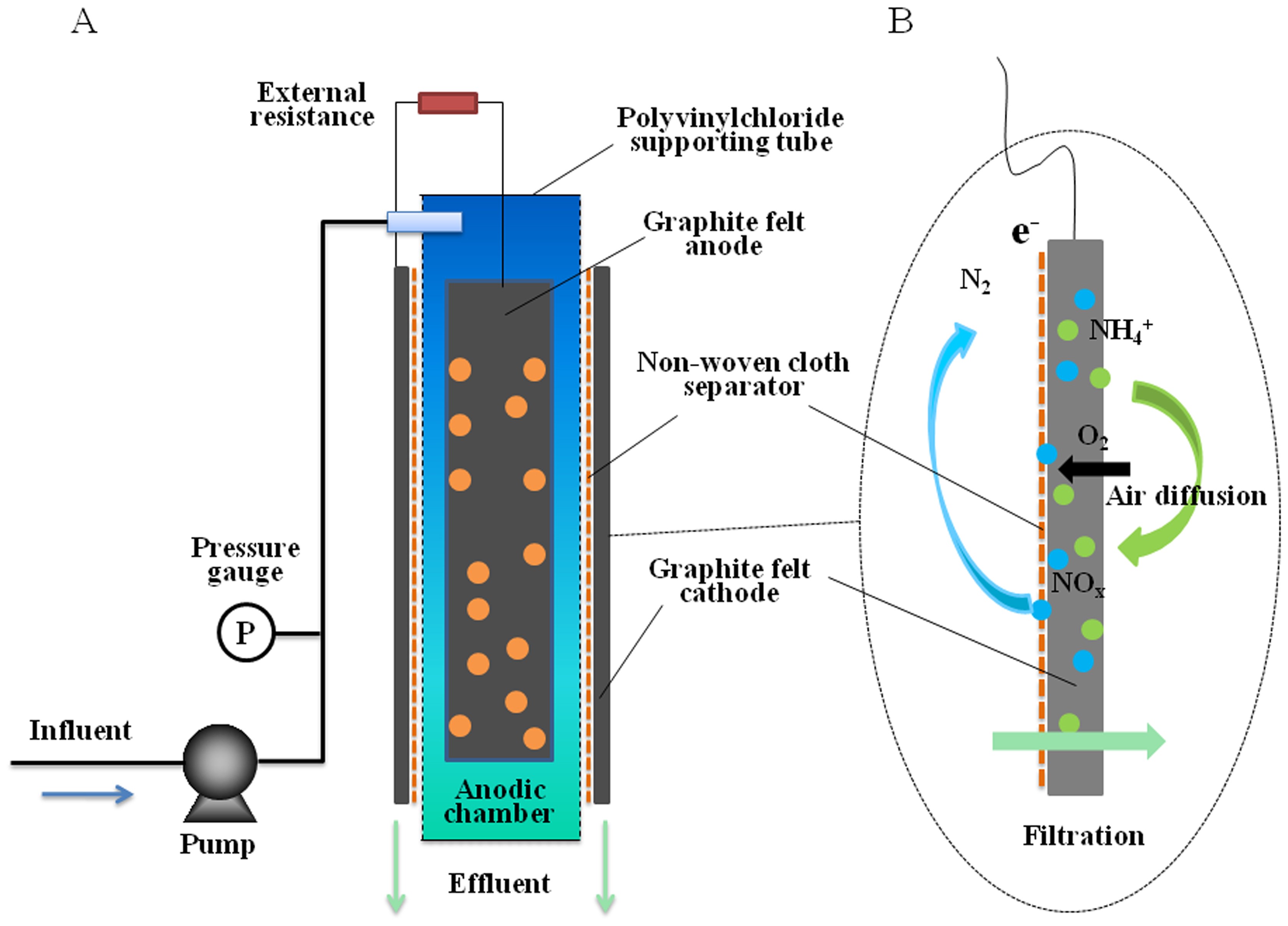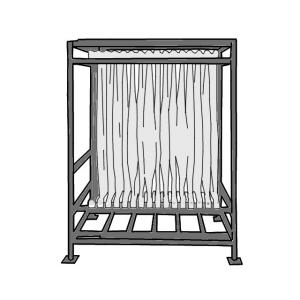Future Trends in Membrane Bioreactor Technology and Its Global Impact
Future Trends in Membrane Bioreactor Technology and Its Global Impact
Blog Article
The Benefits of Membrane Bioreactors in Sustainable Wastewater Management
Membrane layer bioreactors (MBRs) stand for an essential development in lasting wastewater monitoring, effectively combining biological treatment with innovative membrane filtration modern technology. This assimilation not just enhances effluent top quality by efficiently eliminating impurities but additionally opens up avenues for water reuse in various applications, therefore resolving the pressing demand for source preservation. The compact layout of MBRs contributes to substantial decreases in environmental influence and operational prices. As the need for sustainable remedies magnifies, exploring the complex advantages of MBRs may expose unanticipated effects for the future of wastewater treatment systems.
Summary of Membrane Bioreactors
Membrane bioreactors (MBRs) stand for a substantial innovation in wastewater treatment innovation, incorporating biological destruction with membrane layer filtration to improve the effectiveness of the therapy procedure. This cutting-edge system incorporates the benefits of traditional turned on sludge processes with membrane layer technology, enabling boosted solid-liquid splitting up. MBRs make use of semi-permeable membrane layers to different treated water from biomass, leading to high-quality effluent that can be recycled or safely released into the setting.
The operational layout of MBRs normally entails a bioreactor where microbes damage down raw material, followed by a membrane system that filterings system the mixed liquor. This configuration not just minimizes the impact of the treatment center yet also allows for higher biomass focus and lowered hydraulic retention times. Furthermore, MBRs can treating a larger array of impurities, consisting of nutrients and microorganisms, making them ideal for various applications, from municipal wastewater therapy to industrial effluent processing.
The assimilation of MBRs right into wastewater management systems is indicative of a growing pattern in the direction of lasting and reliable practices in environmental design. Their capability to generate premium effluent while decreasing space needs positions MBR innovation as a key player in contemporary wastewater treatment options.
Boosted Effluent Quality

The membrane layer filtration process functions as a physical barrier, making it possible for the retention of microbes and particle matter, which adds to a clearer and cleaner effluent (Membrane Bioreactor). Moreover, MBRs operate at greater biomass concentrations than conventional triggered sludge systems, advertising a lot more effective biodegradation of contaminants. This brings about a decrease in biochemical oxygen demand (FIGURE) and complete put on hold solids (TSS) levels in the final effluent
In addition, MBRs show excellent performance in dealing with tough wastewater make-ups, such as industrial effluents and wastewater with high nutrient loads. Because of this, the effluent created is frequently of better, permitting even more flexible disposal alternatives and minimized ecological impact. Inevitably, the boosted effluent quality attained with MBR innovation emphasizes its important function beforehand sustainable wastewater monitoring methods.
Water Reuse Opportunities
The high-quality effluent produced by membrane bioreactors (MBRs) opens up substantial chances for water reuse in numerous applications. MBRs properly get rid of pollutants, consisting of virus, suspended solids, and raw material, leading to treated water that meets or surpasses governing standards for reuse. This high quality permits the implementation of water recycling efforts throughout varied fields.
One prominent application is in farming, where dealt with wastewater can be made use of for watering, advertising lasting farming techniques while conserving freshwater resources. Furthermore, MBR-treated effluent can be made use of for commercial procedures such as air conditioning, cleansing, and as a procedure water Check This Out source, considerably minimizing the demand for drinkable water in these operations.
In urban atmospheres, MBRs assist in making use of reclaimed water for landscape irrigation, toilet flushing, and other non-potable uses, adding to the overall strength of water system systems. Furthermore, the integration of MBR modern technology in decentralized systems help in handling local water needs, specifically in water-scarce areas.
Decreased Environmental Influence
Just how can the adoption of membrane layer bioreactors (MBRs) add to a reduced ecological influence in wastewater monitoring? MBRs significantly enhance the therapy performance of wastewater while lessening eco-friendly disruptions. Membrane Bioreactor.
Additionally, MBRs run at reduced hydraulic retention times contrasted to conventional systems, causing smaller therapy plant footprints. This portable style reduces land usage, thus maintaining natural environments and biodiversity. The process additionally produces less sludge than typical techniques, their website alleviating disposal difficulties and lowering greenhouse gas emissions connected with sludge administration.
In addition, MBRs assist in the recovery of useful resources, such as water and nutrients, contributing to a circular economy. By making it possible for water reuse for irrigation or industrial processes, MBRs aid reduce freshwater scarcity, hence advertising sustainable water make use of methods. Ultimately, the fostering of MBR technology stands for a considerable stride in the direction of decreasing the environmental influence of wastewater administration systems.
Financial Advantages of MBRs

In addition, MBRs assist in the manufacturing of high-grade effluent, which can be recycled for various applications, such as agricultural irrigation and industrial procedures - Membrane Bioreactor. This reuse capacity can significantly lower water purchase expenses, supplying a financial reward for industries facing strict water policies
The compact design of MBR systems additionally leads to lowered land demands, which is especially valuable in urban areas where property is pricey. By reducing room, industries and communities can save money on land purchase and upkeep expenses.
In addition, MBRs often call for less constant upkeep and have a longer life-span than typical systems, additionally contributing to set you back savings. In recap, the financial advantages of MBRs-- ranging from reduced operational expenses to land cost savings and effluent reuse-- make them a compelling choice for sustainable wastewater administration, offering both long-term and prompt economic benefits.
Verdict
Membrane bioreactors stand for a transformative approach to sustainable wastewater management, incorporating biological therapy with innovative membrane filtering for exceptional effluent top quality. Their capability for effective pollutant elimination helps with water reuse, therefore saving essential freshwater sources. In addition, MBRs add to reduced environmental impacts via portable styles and reduced sludge generation. Economic benefits better enhance their viability, making MBRs a promising remedy for attending to the obstacles of wastewater treatment and advertising lasting source management.
Membrane layer bioreactors (MBRs) stand for a pivotal advancement in lasting wastewater administration, properly combining organic therapy with sophisticated membrane filtering modern technology.Membrane bioreactors (MBRs) represent a substantial development in wastewater read what he said therapy innovation, integrating organic deterioration with membrane layer purification to boost the effectiveness of the therapy procedure.Attaining enhanced effluent top quality is one of the most significant benefits of utilizing membrane layer bioreactors (MBRs) in wastewater treatment.Furthermore, MBRs demonstrate exceptional performance in treating difficult wastewater structures, such as industrial effluents and wastewater with high nutrient loads.Incorporating membrane layer bioreactors (MBRs) into wastewater monitoring not only minimizes environmental impact yet also offers substantial economic benefits.
Report this page